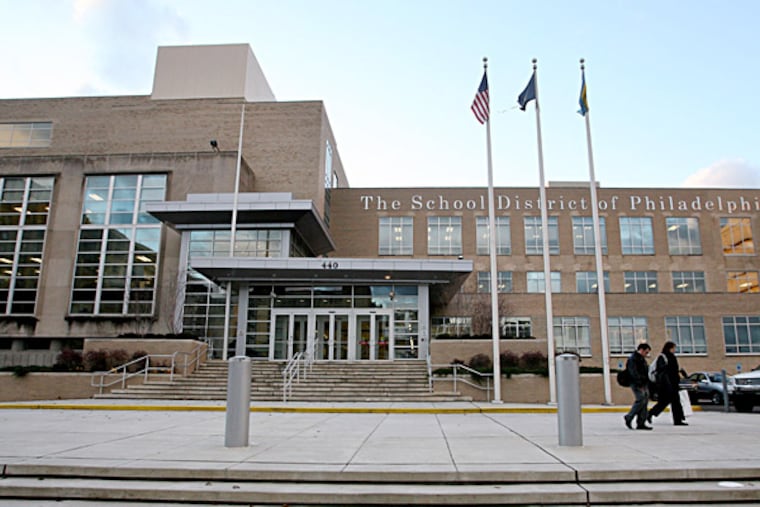Philly schools can do better than the ‘rubber room’ | Editorial
The district needs a place for staff who are under investigation for wrongdoing but alleged poor conditions and the unclear timelines on when its occupants' cases are adjudicated are unacceptable.

Given the growing teacher shortage in Pennsylvania, it may be surprising to find out there are dozens of veteran classroom instructors getting paid to sit on the sidelines — some of them for years. But that’s exactly what’s happening at 440 N. Broad St., in a place at Philadelphia School District headquarters known as the rubber room.
Philadelphia is hardly the only school system in the country to have a timeout space for workers who are accused of misconduct and must wait until their case is resolved to either return to their roles or be dismissed. But the poor conditions said to exist in the room on Broad Street and the unclear timelines on when its occupants’ cases are adjudicated are unacceptable.
Rather than spending their workdays drafting lesson plans, grading assignments, or teaching children, educators who are accused of wrongdoing in Philadelphia spend their days playing games on their phones, watching movies, or staring at the wall. During that time, the district continues to pay the rubber room residents’ salaries and benefits. A school administrator who was eventually exonerated told The Inquirer the cost of his stay had been $225,000 not to work for a year-and-a-half.
» READ MORE: Watlington’s plans for Philadelphia schools could help transform education — and the city itself | Editorial
In a district with more than 100,000 students, it is inevitable misconduct allegations will arise. Still, many of these complaints are ultimately dismissed, and the district should strive to resolve each case in a timely manner, for all parties’ sake.
And although the district needs a designated place for staff who are under investigation for alleged impropriety, the bleak conditions workers are allegedly forced to endure in the room have been called “disgusting.”
Teachers describe spending hours in a windowless room, with no direction from leadership. The space itself is filthy and infested with bedbugs and other pests. They also have no work to do, which many describe as insulting and demeaning. Some teachers told The Inquirer the experience can be likened to being in jail.
Given these clear failures, it is heartening to see City Council is investigating the issue.
Council Majority Whip Isaiah Thomas has called for hearings, with the aim of both improving conditions for teachers assigned to the room and shortening their stays. Both goals are long overdue. Oz Hill, the district’s chief operating officer, has also ordered the fumigation of the bedbugs, an infestation that could have threatened other offices at the headquarters building if not abated.
» READ MORE: I met Philly schools’ superintendent at Whole Foods. As a teacher, I can’t afford to shop there. | Opinion
In conversations with this Editorial Board, Superintendent Tony B. Watlington Sr. has consistently stressed the importance of maintaining and expanding the teacher pipeline to avoid the worst consequences of the growing teacher shortage.
This is an especially difficult task given that one in five new teachers in Philadelphia quits after their first year. Getting teachers out of the rubber room faster and more efficiently is another way to ensure adequate coverage of classrooms.
In addition to processing complaints more quickly, another option for the district is finding productive work for these experienced teachers to perform. If a teacher has been replaced by a long-term substitute, it may be beneficial to ask for their help in grading assignments or planning lessons. In some cases, there may be administrative tasks they can assist with.
Anything would be better than spending hours watching the paint dry and their training atrophy — for them, and for the education of Philadelphia’s kids.